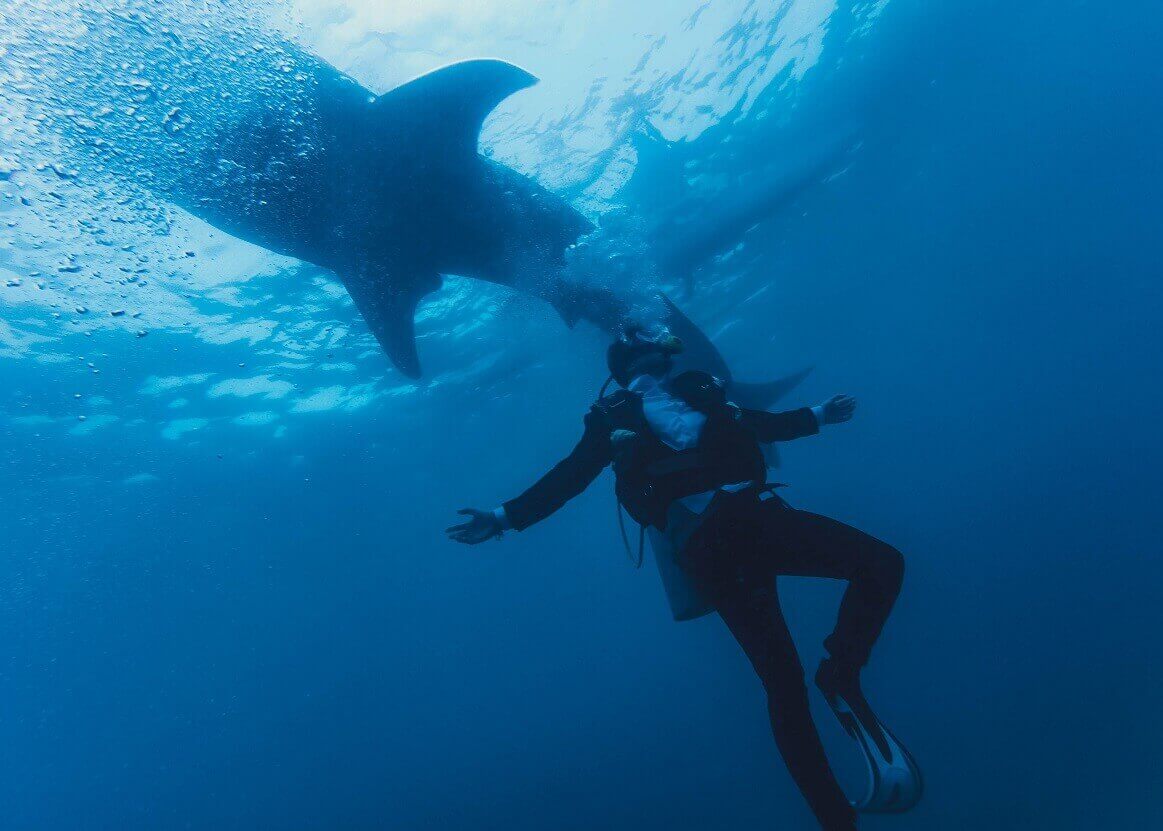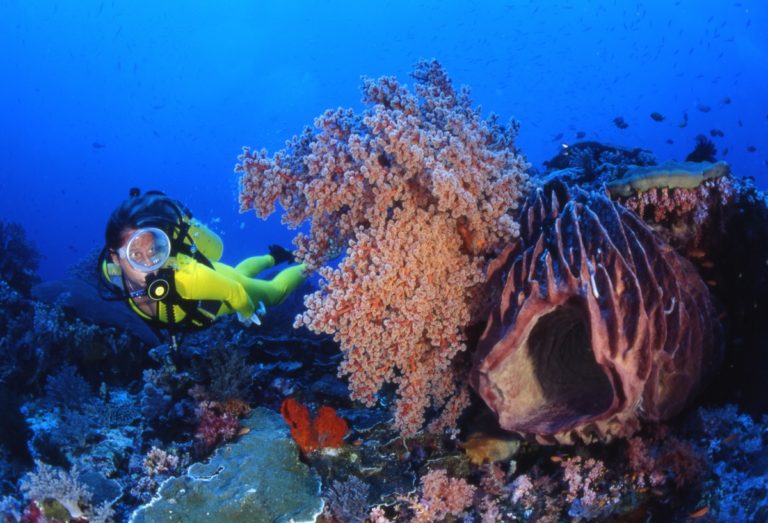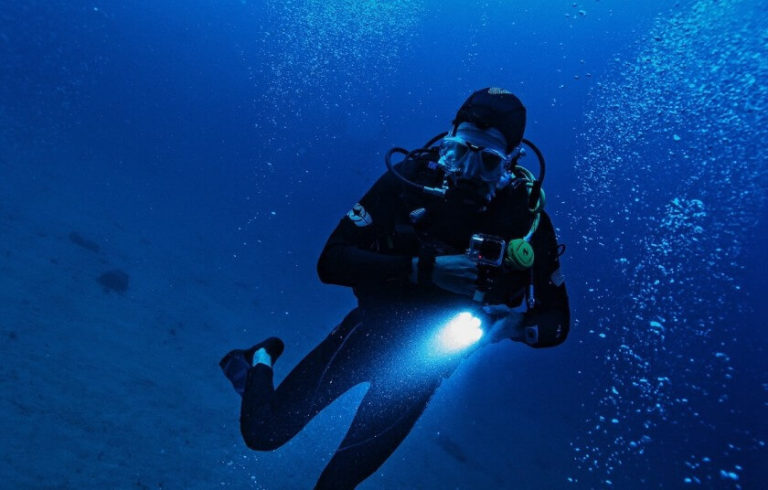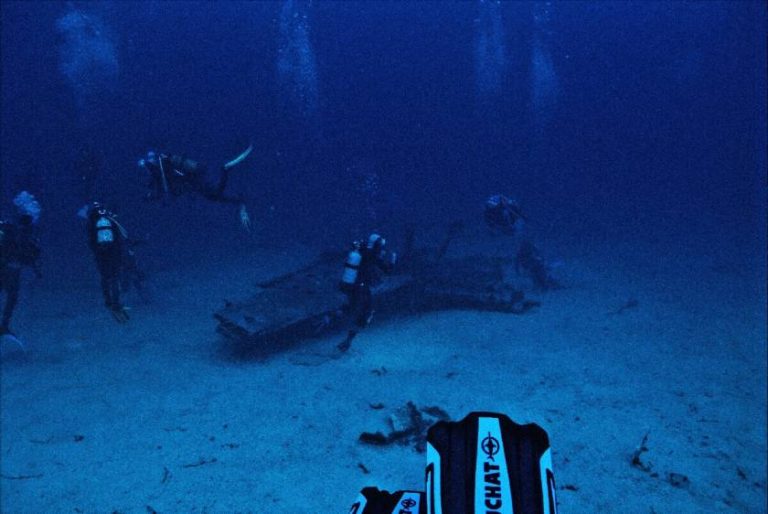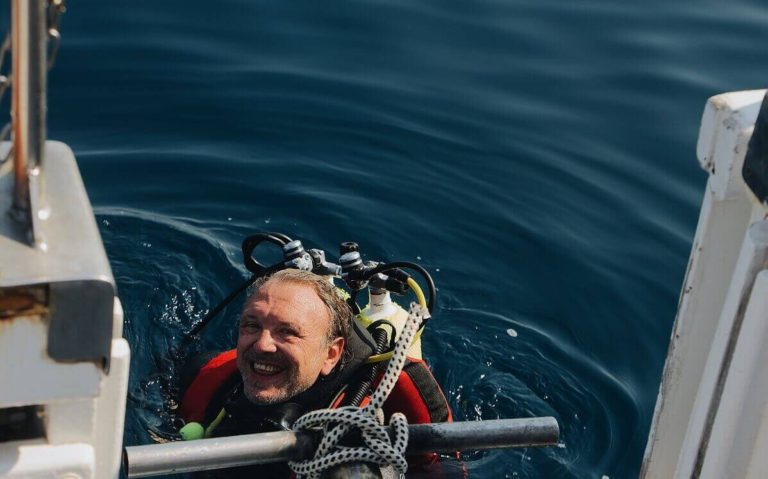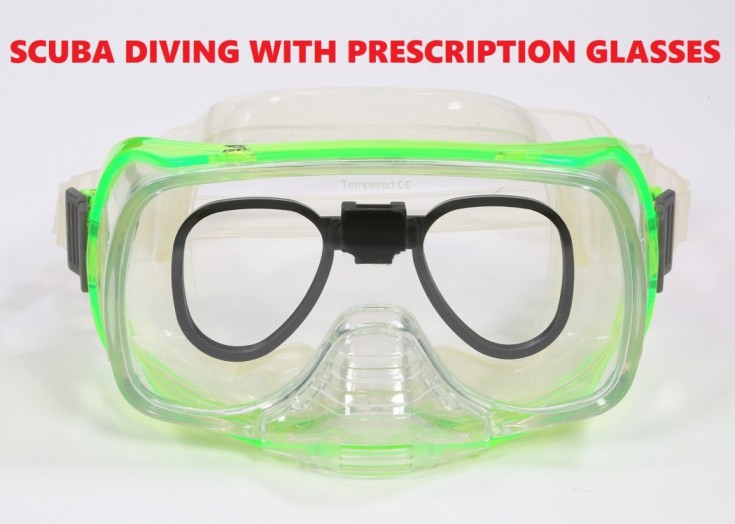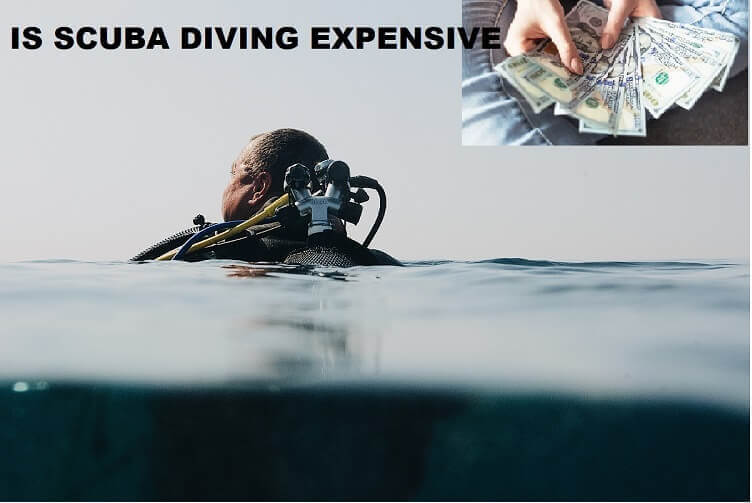Dangers of Deep Sea Diving
Scuba diving truly is a fun sport enjoyed by all demographics. While allowing us to explore and discover new species, there are many dangers surrounding the divers. Let’s explore some of the dangers of deep-sea diving?
Dangers of deep-sea diving include drowning, oxygen toxicity, equipment failure and malfunction, pulmonary embolism, attack by marine life, decompression sickness, and nitrogen narcosis. These are some of the main risks deep-sea divers encounter. There are more risks involved in deep-sea diving, especially for inexperienced divers.
Dangers associated with deep-sea diving are however not only limited to the inexperienced diver. Experienced divers face these challenges too and may fail to get through them in some cases.
Beginners are not encouraged to go deep-sea diving until they have fully acquired the necessary skills and have an experienced guide with them during their first dives.
This is because a beginner lacks the necessary skills to respond in such situations risking their lives even more.
In this article, we’ll dive deeper into the risks of deep-sea diving, how to avoid these risks, what to do when you encounter the risk and so much more.
Keep reading to learn more.
1. Drowning
Drowning accounts for the highest number of scuba diving deaths both in deep-sea and in open water.
The most common events that lead to drowning include;
- panicking
- equipment malfunction
- loss of breathe
- cardiovascular conditions such as a heart attack
- losing consciousness
- other preexisting medical conditions
Everyone has an element of fear deep inside, it’s the degree of fear that matters the most. In most cases, especially for beginner divers once they notice something isn’t working properly or feel overwhelmed by being underwater, divers tend to panic easily.
During this moment of confusion, anxiety, and fear of what happens next, drowning is very easy.
Drowning sometimes occurs due to unexpected circumstances such as unconsciousness, heart attacks, or loss of breath.
This can happen even to the most seasoned divers, the body simply fails to function properly while you are underwater.
How to Prevent Drowning
Some drowning accidents can be prevented by practicing buddy or team diving.
Avoid going on solo dives, diving with a buddy or a team you have someone watching your back at all times. This way in case you lose consciousness or experience any discomfort that could result in drowning a buddy will take you out of the water increasing the chances of survival.
Most importantly never go deep-sea diving if you don’t feel well or have recently been unwell. It’s best to always seek medical advice before diving and let the doctor access any risks that diving could pose to your health.
In addition, if you have been on a long diving break, don’t go deep-sea diving before getting clearance from your doctor and probably after taking a refresher course.
The best practice to prevent drowning is always buddy or team diving, this way you have people around you watching over each other.
2. Decompression Sickness (DCS)
Also referred to as the bends, DCS is a common risk associated with diving and probably the most common risk discussed among divers.
DCS occurs due to the accumulation of nitrogen in the body. While underwater, divers breathe decompressed air and the body takes up nitrogen in the process. For this reason, divers always ascend slowly allowing the body tissues to release absorbed nitrogen by the time the diver surfaces.
Ascending quickly will result in DCS because the body tissues didn’t have enough time to release excess nitrogen absorbed under high pressure.
Once the diver is on the surface where pressure is low, the excess nitrogen forms bubbles in the joints, or other body tissues thus causing the bends.
Divers have described the bends as very painful and can cause tissue or nerve damage if left untreated. In extreme cases, this condition could be fatal.
How to avoid DCS (the bends)
Is it possible to avoid or prevent the bends?
You can prevent or lessen the severity by following the ascending speed required; observing the dive computers and diving tables as well as following the safety stop standards.
Following these set rules and guidelines, allows the body tissues to release the excess nitrogen during the ascending period.
Other tips to observe include staying hydrated, avoiding drugs and alcohol, getting proper rest, and maintaining a physical fitness routine.
These practices help keep your body fit and allow it to function to its full capacity. This way, the body can get rid of the excess nitrogen as you ascend.
Most importantly, always dive within your capacity. Beginners shouldn’t attempt to dive to unfamiliar depths, you never know how your body will react in these conditions.
Always dive to the limits your training allows you to. For deeper lengths, it’s safer to get proper training first before exploring these new environments underwater.
Keep in mind that DCS can still occur even after following all the set guidelines and rules. Monitor your body after diving sessions and seek immediate medical care once you notice any signs and symptoms of DCS.
Common signs and symptoms of DCS include;
- Headaches
- joint pains
- fevers
- memory loss
- any unexplained pain in your body
It’s important to mention to your doctor if you recently had a scuba diving session so they are aware of all the possible causes.
More on scuba diving safety: IS IT SAFE TO SCUBA DIVE WITH SHARKS?
3. Oxygen Toxicity
Deep-sea divers are at a high risk of oxygen toxicity compared to recreational scuba divers.
The most common type of oxygen toxicity among divers is Central Nervous System Oxygen Toxicity (CNS). Divers going to very deep lengths over 100 meters can easily get oxygen toxicity as they require more oxygen at these levels.
Deep-sea divers usually rely on mixed gases during the dive. The mixed gasses usually have a very high concentration of oxygen over the normal 21% concentration.
Using a tank filled with highly concentrated oxygen even at shallow diving depths can be toxic if you lack the skills to use it properly.
Special training is required for all divers going deep sea as they depend on these highly concentrated gas tanks known as Enriched Air (Nitrox)
How to Avoid Oxygen Toxicity
- This can be avoided by diving within the recreational scuba diving limits
- Only use the normal scuba diving air tanks while at the recreational limits
- For deep-sea diving, ensure you have the proper training to use the highly concentrated oxygen and even at these levels divers shouldn’t use 100% oxygen tanks.
- Use diving computers as a guide to stay within your limits
- Monitor gas consumption, breathe easily and normally
- Avoid exhausting yourself while deep-sea diving
- Always go with a buddy
Common signs of oxygen toxicity
- Dizziness
- Irritability
- Convulsions
- Nausea
- Visual disturbance

4. Equipment Malfunction
Many deep-sea divers usually own their diving equipment or have a dedicated unit set for them in the organizations they work for. Many will always check their equipment every now and then and before every dive minimizing the risk of equipment malfunction.
However, many casual divers don’t own scuba diving gear and will depend on the rented options available at the diving sites. This is where the risk comes in, always ask your instructor to check the equipment for you and ensure everything is working properly.
It’s common practice to always check the equipment before each dive. If you have doubts ask for a replacement before the dive.
The most common causes of equipment malfunction include;
- broken gauges
- raptured regulators
- O- ring failure
- gas cylinders that won’t close properly
The list isn’t however limited to only these malfunctions, always check everything including fins and masks, and ensure they all fit and work properly.
Malfunctioning equipment increases the risk of drowning and DCS.
How to avoid Malfunctioning equipment
Checking and ascertaining that everything is working properly before the dive will prevent any malfunctioning while underwater. The last thing you want is a broken regulator during the dive.
Divers who own scuba diving gear should always ensure it is checked by a qualified scuba diving gear technician.
In the rare event that your equipment malfunctions while underwater, ask for help from your diving instructor, buddy, or team members as soon as you notice it.
5. Pulmonary Embolism
Also known as Lung expansion can occur if you ascend very fast from your dive. The risk increases when divers hold their breath while diving and ascending trapping more air in their lungs.
This trapped air will then expand as you ascend and could cause the lungs to rupture.
How to avoid Pulmonary Embolism
- Never hold your breath at any point during the dive. Remember to relax and breathe slowly
- Ascend slowly after every dive and keep breathing normally
6. Attack by Marine Life
The underwater is a whole ecosystem on its own; always remember you are going into a wild environment with all sorts of creatures.
One of the first rules taught in a scuba diving class is never to touch anything underwater. Don’t touch the corals, fish, or anything you see.
You will encounter many beautiful creatures and get tempted to touch them, resist that urge and only enjoy them with your eyes.
Contrary to what many non-divers may think, sharks are rarely responsible for injuries and accidents reported underwater.
As long as you do not disturb the creatures by touching them or trying to scare them by tapping or any other activities, marine life won’t attack you.
However, keep in mind accidents do happen even when you least expect them.
How to avoid Attack by Maine Life
- Always stay calm while in the water
- Don’t touch or pet anything underwater. Keep your hands to yourself
- Maintain good buoyancy
- Respect the marine environment, the goal is to explore and enjoy the beauty without disrupting it.

7. Nitrogen Narcosis
Just like Oxygen toxicity, deep-sea divers are at a higher risk of getting nitrogen narcosis.
Also known as the martini effect or rapture of the deep, nitrogen narcosis results from breathing high levels of nitrogen at very high pressures.
Inhaling nitrogen at high pressure gives the diver a feeling of drunkenness which could result in loss of consciousness, disorientation, hallucinations, and poor judgment as the brain isn’t functioning properly.
This is very dangerous and increases the risk of DS and drowning which can be fatal.
How to avoid Nitrogen Narcosis
- Deep-sea divers are required to undergo all training sessions for deep-sea divers. Here the divers learn how to use highly concentrated ai tanks, how to respond to these issues and how to avoid them.
- Similarly, most deep-sea divers prefer using heliox which is a mixture of helium and oxygen. Helium is considered a safer choice compared to nitrogen as it doesn’t cause inert gas narcosis.
- Nitrogen narcosis can also be avoided by shallow diving.
8. Strong currents
Underwater currents can be very powerful and in most cases don’t always match the overwater currents. Divers easily get separated from their teams, experience separation anxiety that could result in panicking, exhaustion, rapid consumption of gas and they risk attack from marine life during this commotion.
Strong water currents could also result in a collision with objects in water causing injuries.
How to avoid strong currents
- Sometimes it’s difficult to avoid the currents since they can simply come when you least expect them. However, you can avoid this by diving into familiar areas; avoid sections known to have very strong currents.
- Divers encountering strong currents can minimize other risks by staying calm, having the skills how to handle strong currents.
- Cancel dives once you start experiencing many strong currents
- When in familiar environments, divers can simply flow with the current since they know how to get back to safety. However, avoid drift diving in new environments as it could take you to more dangerous or unfamiliar territories.
9. Boat Collision
Closely related to risk number 8, boat collision accidents account for a significant number of deaths in the US. Strong currents can drift you in the direction of boats resulting in propellers striking and instantly killing you.
In normal circumstances, divers always dive in areas with minimal traffic from the boats to prevent these accidents.
How to avoid Boat collisions
- Divers should avoid diving in areas with high boat traffic
- Always be conscious of the environment before emerging to the surface. Look up before surfacing
- Divers should avoid crowding one area when taking dives; this will reduce the boat traffic in the area.
10. Hypothermia
Last but not least, hypothermia is a common danger associated with scuba diving and deep-sea diving. As you go down the sea level, the water becomes colder.
Beginners may be more prone to hypothermia since they are not used to such extreme water conditions. However, this also happens to experienced divers. It’s also important to note that hypothermia can also occur in shallow tropical waters.
The low water temperatures make it very hard to keep the internal body temperature warm interfering with the functionality of your body.
How to Avoid Hypothermia
- Wear the correct garment when going deep-sea diving
- Ascend from the water at the slightest sign of hypothermia, don’t wait to see how your body handles it
- Proper training is required before attempting dives in deep water levels.

Final thoughts
These are some of the common dangers associated with deep-sea diving. There are many more such as getting trapped by seaweeds, separation from your dive buddy or team, running out of breathing gas, getting lost among others.
This list is only meant to enlighten you and prepare you if you hope to venture into deep-sea diving.
This shouldn’t stop you from enjoying your scuba diving sessions or daring to go over your comfort diving zone. Make sure you have the necessary training for extreme depth diving and you are mentally prepared and aware of all the risks.
Scuba diving in general is a safe sport when done at the recommended recreational limits.
As always, listen to your body and trust your instincts before taking the step to go plunge deeper into the water.
I hope this article provided all the answers to the dangers of deep-sea diving.

